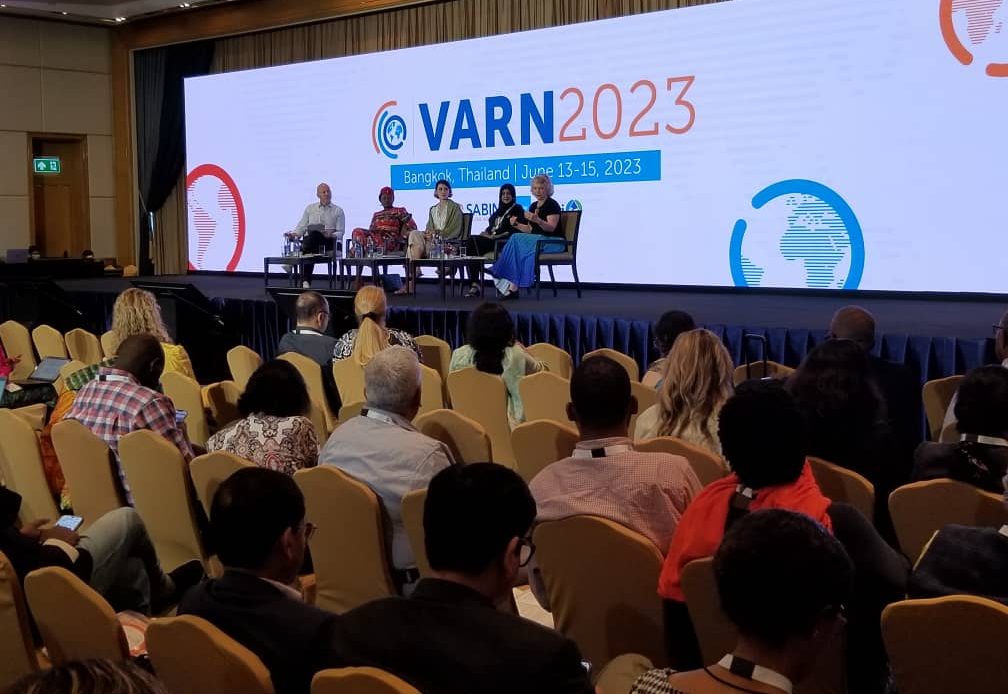By Sunday Oko and Kemisola Agbaoye (Lead Writers)
Vaccination remains one of the most cost-effective public health interventions of modern medicine. Yet, major public health events like the COVID-19 pandemic have shown that vaccine hesitancy fuelled by mis- and dis-information and other factors can significantly hamper its uptake, threatening to reverse progress in combatting vaccine-preventable diseases like measles and polio.
Vaccine demand and hesitancy was the main focus of the discussions at the second annual Vaccination Acceptance Research Network (VARN 2023) conference held in Bangkok, Thailand, in June 2023. In the face of climate change, emerging and re-emerging diseases, scarce resources, and rising persistent vaccine hesitancy, how do countries ensure that proven, evidence-based public health interventions reach their most vulnerable populations, including zero-dose children, women, the elderly, people living with disabilities, and those in conflict-ridden and hard to reach areas?
VARN 2023 featured experts from over 50 countries and participants from diverse disciplines, including global health and policy, government, the private sector, donor agencies, civil society organisations, and academia. The conference, themed “Immunization: The Equity Imperative”, provided a forum to discuss key priorities and opportunities emerging across the ecosystem of vaccination programmes, policies, and practices.
A team from Nigeria Health Watch took part and gave two poster presentations to share learnings from implementing an online and offline social listening project piloted in Niger State to manage health misinformation. Several other presentations, panels, and plenary sessions were held over the course of three days, highlighting approaches to increase global vaccine demand and acceptance.
These are the three key takeaways from the conference.
- Leave no one behind: ensuring equitable access to vaccines throughout the life course
The COVID-19 pandemic has significantly impacted essential immunisation services, leading to a significant rise in unvaccinated and zero-dose children worldwide. This is particularly evident in Africa. Zero-dose children are defined as children who have not had their first dose of the Diphtheria, Tetanus, and Pertussis (DTP1) vaccine and are not likely to be reached through routine immunisation services. Almost half of these children live in urban areas, remote communities, and conflict settings. Two-thirds of these zero-dose children live in ten countries, mostly in Africa.
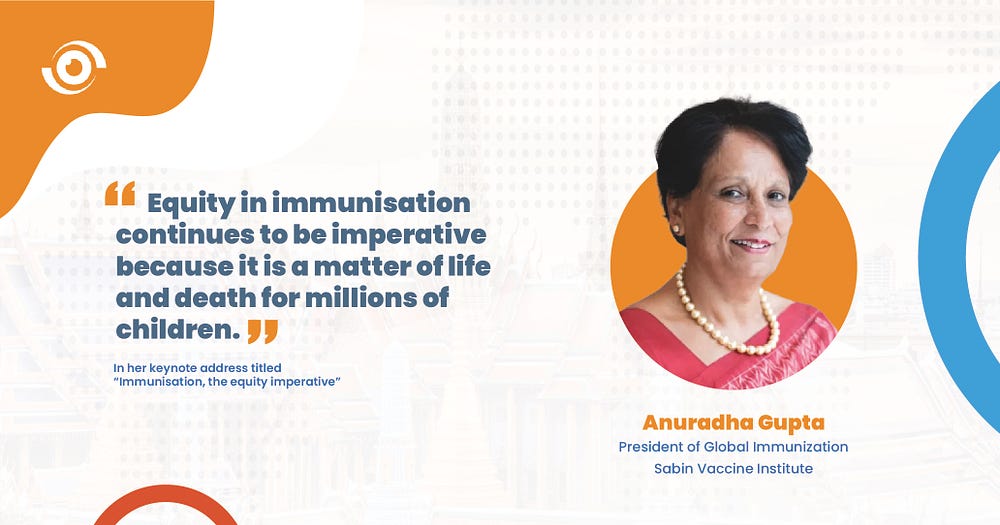
The first panel session, themed “Setting a new course for reaching marginalised and zero-dose communities, conflict settings, and reducing gender barriers”, aimed to examine the root causes of global immunisation coverage gaps, especially among vulnerable populations, and proffer recommendations to catch up. While the root causes of declining global immunisation coverage rates are multifaceted, a stand-out insight from the discussions on vaccine equity is the role that reduced demand has played in widening this gap — are current health systems designed to leave out these marginalised/vulnerable populations by default, and are the current mechanisms for reaching them such as supplementary immunisation campaigns, sufficient, given the new realities brought on by the COVID-19 pandemic?
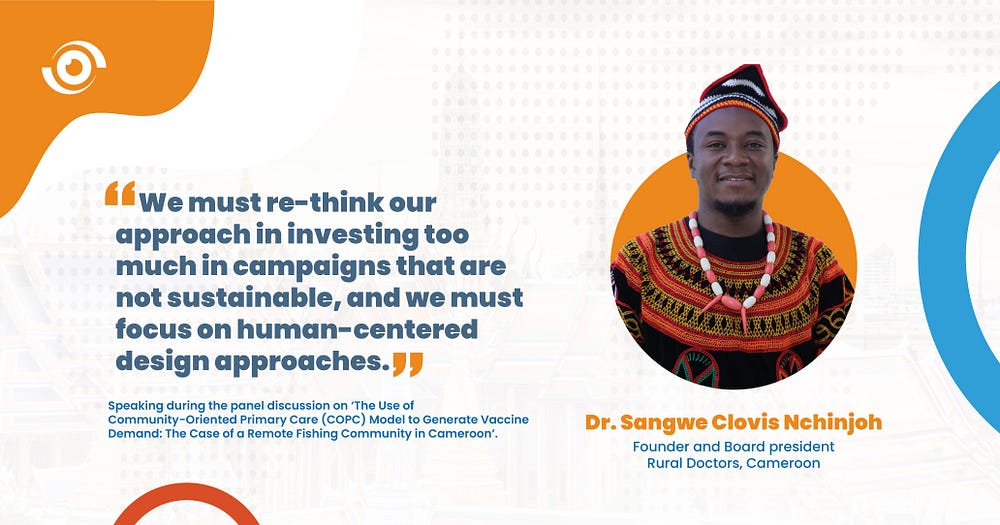
Effective vaccination programmes require seamless integration into comprehensive health services, employing a holistic 360-degree approach that addresses supply and demand. Availability of vaccines no longer automatically translate to shots in arms. Immunisation campaigns must prioritise communication and be human centred — touching the hearts and minds of the target audience. Additionally, community engagement plays a crucial role, leveraging the influence of religious and traditional leaders and trusted voices to enhance vaccine uptake.
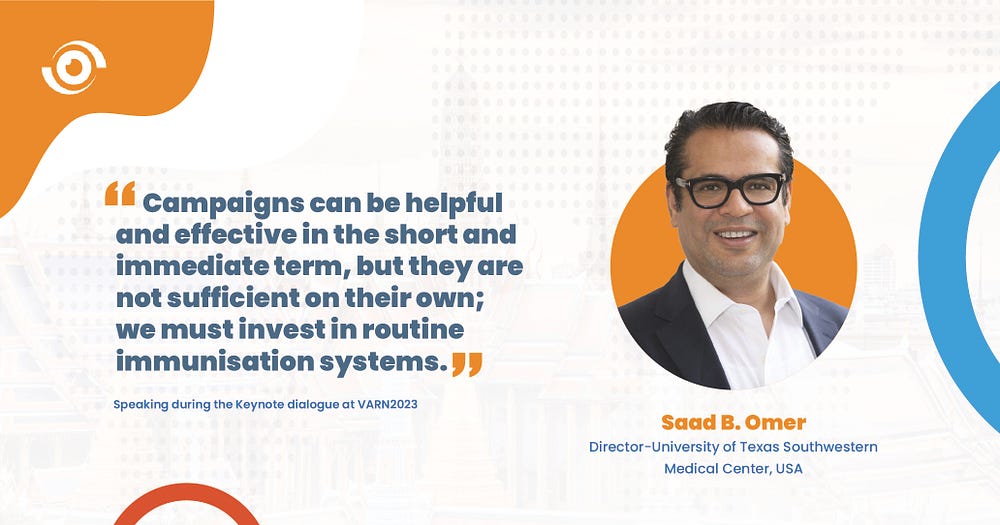
Identifying and addressing barriers such as geographic distance, cost, and cultural beliefs is essential to ensure equitable access to vaccines. Strategies to overcome these barriers may include establishing mobile vaccination units to reach remote areas, reducing or eliminating out-of-pocket costs for vaccines, and leveraging the support of community health workers to reach underserved populations. Collaborating with educational institutions would also be beneficial in improving immunisation coverage, particularly among school-aged children, such as for the Human Papilloma Virus (HPV) vaccine. Such programmes can be integrated into existing health education curricula, leveraging school infrastructure for immunisation campaigns.
2. Build trust: listen to and engage with communities
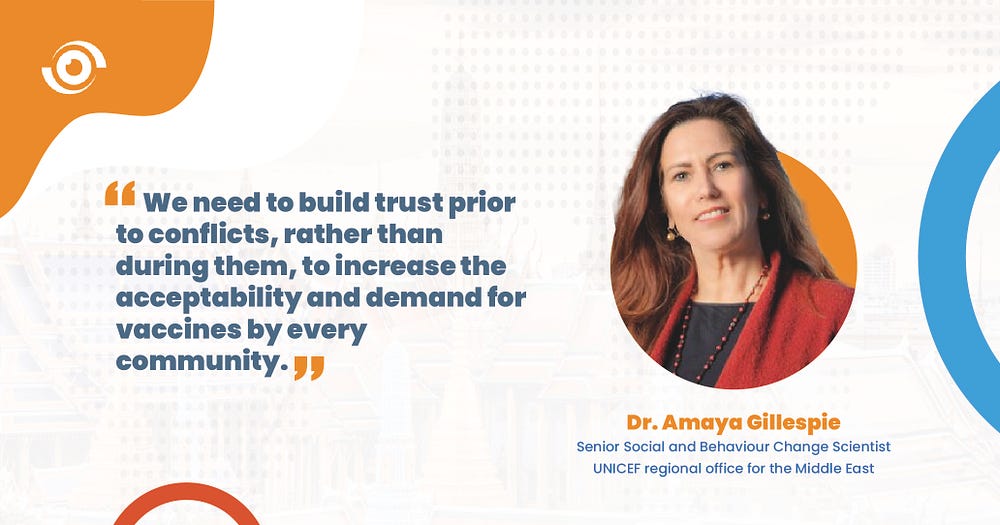
Trust in public health suffered a significant blow during the COVID-19 pandemic, requiring governments, public health institutions, researchers, and others to rebuild trust within their communities and encourage the uptake of lifesaving interventions like vaccines. The rapid spread of mis- and dis-information during the pandemic, often spread by trusted voices such as political, religious or traditional leaders and through media channels, has threatened previous gains in boosting vaccine confidence and acceptance. Restoring trust is crucial. However, how can this be accomplished?
From plenary to concurrent poster sessions, VARN2023 featured examples of projects where researchers and implementers deployed innovative methods to cultivate trust. These initiatives, involving youth champions, healthcare workers, community influencers, and the media, shared a common success factor in boosting vaccine demand and uptake — listening is key.
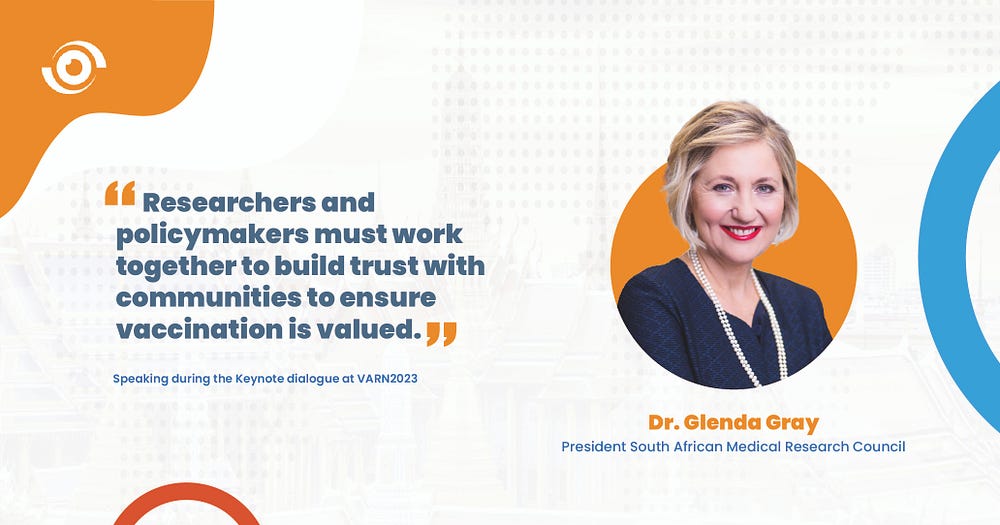
In addition, it is crucial to engage with communities by meeting them at their level and communicating in languages they understand. Panelists emphasised the importance of communicating with certainty, delivering salient, engaging, messages, utilising storytelling to connect on a human level, and responding promptly, as misinformation thrives in the absence of accurate information.
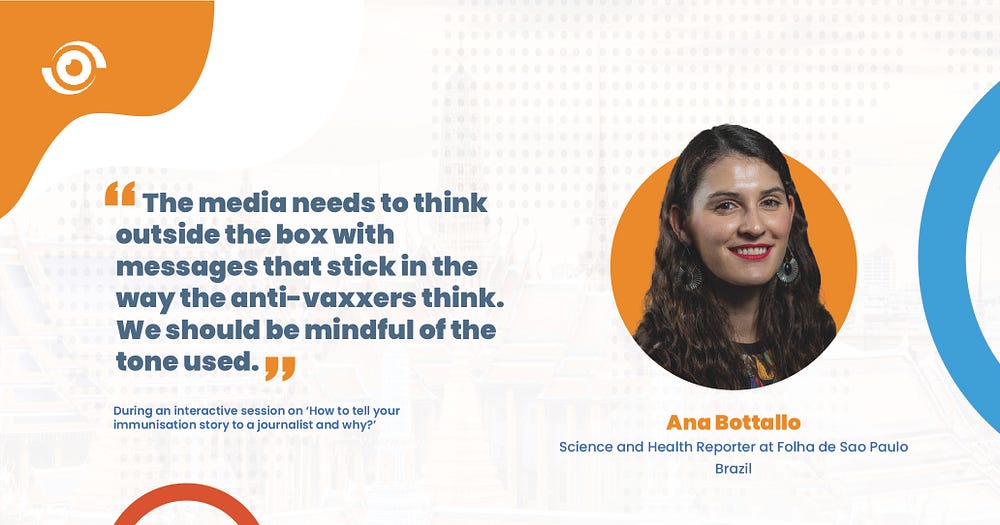
Lastly, an essential aspect of building trust is establishing credibility and gaining the trust of online and offline community influencers and champions. Engaging these influencers and champions can harness their voices to promote vaccine uptake and drive positive public health outcomes.
3. Innovate: leverage technology, target the next generation, build capacity
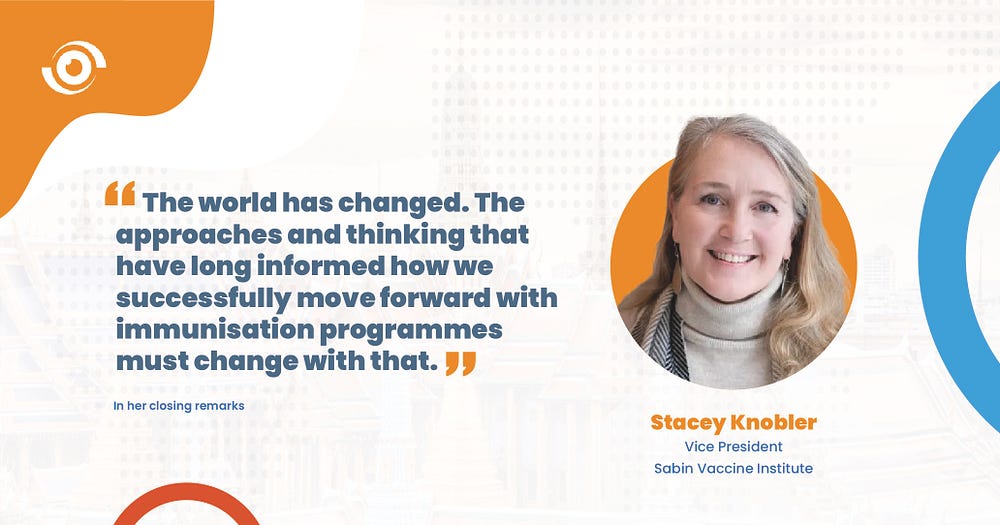
Artificial intelligence, gamification, animation, cartoons and the use of comedy and humour are examples of methods that have been deployed to boost vaccine uptake during the COVID-19 pandemic. These are methods that have been proven to work. Capitalising on these successful approaches and integrating them into routine immunisation programmes is crucial. When it comes to vaccination programmes targeting young people and children, strategies can focus on enhancing their knowledge and awareness of the benefits of vaccines. While parental consent is typically required for HPV vaccines, these programmes can aim to empower young people and children with information to make informed decisions, ultimately cultivating a generation that is less vulnerable to the influence of misinformation compared to their parents.
Furthermore, it is essential for governments and implementers to adopt innovative approaches in targeting different segments of the population, utilising effective social and behaviour change methods.
One such method is motivational interviewing, which emphasises understanding people’s motivations for their position and empowering them to make informed choices. This approach emphasises the importance of listening with empathy rather than immediately correcting their perspectives. Building the capacity of frontline healthcare workers to employ these proven methods is crucial, especially considering that communication and behaviour change techniques are often not included in the training curricula for doctors and other healthcare professionals.
Lessons for Nigeria
Nigeria ranks the second globally in terms of the number of zero-dose children, following India, and has the highest number of children who have not received the measles vaccine. The recent diphtheria outbreak, annual cholera and Lassa fever outbreaks and the upcoming introduction of the HPV vaccine into the national immunisation schedule all highlight the need for Nigeria to draw insights from these discussions and take appropriate action by,
- Listening: Don’t stop at surveys or routine data collection; actively listen to communities. Invest in technology for real-time listening using artificial and human-driven intelligence platforms. Since healthcare workers are still the most trusted source of health information, train vaccinators and other front-line healthcare workers on motivational interviewing, equipping them to bridge the intention-action gap and boost vaccine uptake effectively. Ensure proactive monitoring and swift debunking of misinformation on the platforms through which it spreads.
- Communicating: Be clear about the knowns and unknowns. Don’t just issue statements, employ storytelling, engaging, innovative messaging. Communicate rapidly and proactively in the language that people understand and leave no vacuums. Gain the trust of and leverage trusted voices.
- Acting: Ensure equitable access to vaccines by investing in efficient supply chain mechanisms, infrastructure, mobile clinics and consumables. Increase budgetary allocations to strengthen the primary healthcare infrastructure responsible for delivering vaccines to communities. Leverage innovative public-private partnerships to address the supply-side challenges in Nigeria, as the country still has significant progress to make in this regard, even as global attention focuses on the issue of reduced vaccine demand and uptake due to the COVID-19 pandemic.


